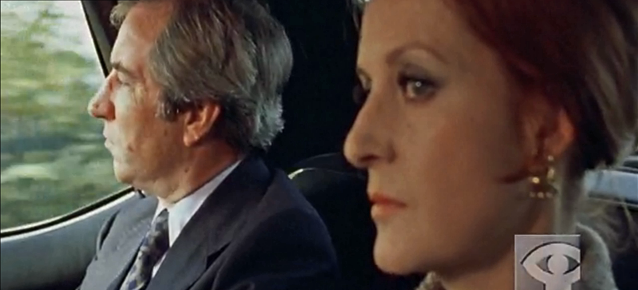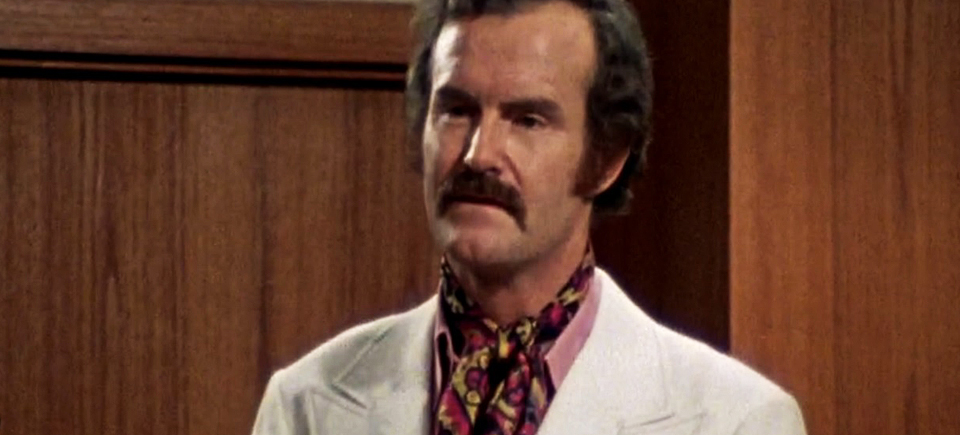
The Sloane Affair: Tax Fraud Drama with a Twist
The Sloane Affair: Tax Fraud Drama with a Twist
Do you enjoy tense, exciting, dramatic films that focus on police investigations? What about gripping courtroom dramas? If you answered “Yes” to both questions, have I got a good film for you! Produced by the NFB in 1972, The Sloane Affair is all this and more, and is the subject of my blog post today.
In the early 1960s, the Department of Revenue (Taxation) was looking to make a short training film to highlight the work of the Special Investigations unit, in an effort to depict these officers as highly skilled, dedicated and fair-minded public servants doing a necessary job. The NFB was contacted but the project did not go anywhere. In 1969, the project was re-visited and the NFB assigned director-producer Doug Jackson to investigate a possible collaboration with the Revenue people.
Jackson spent some time at the department researching the work of this unit. He had to take an oath of secrecy, as most of what he was looking at was highly confidential. After several weeks, he decided that a short documentary would not work. He proposed instead a dramatic film about a fictional case of tax fraud that would use elements of real cases as its basis.
The Revenue Department was very interested and gave the project the green light. Shot in a few short weeks in late 1971 in and around Montreal (doubling for Toronto), the film tells the story of Sloane Construction and its CEO Allan Sloane who, on the surface, appears only to have “cut a few corners” in his business dealings, but turns out to be involved in massive fraud.
Because the Revenue Department was attached to the project, all the legal aspects presented in the film had to be authentic and accord with the tax laws of Canada. This did not deter Jackson, who scripted a solid dramatic film with the help of screenwriter Alvin Goldman. It is to their credit that the film is so taut and entertaining; it could have easily turned into a boring procedural piece, long on legal jargon and short on drama.
Once production was finished, the NFB approached the CBC about broadcasting it. It took some time for the Revenue Department to agree to a broadcast. They consented because the film would create public awareness and act as a deterrent against potential lawbreakers. CBC decided to buy The Sloane Affair, and it was broadcast on the full network on February 14, 1973 (just in time for tax season) to good reviews. Most reviewers were quite impressed that a film for the Revenue department could be so fascinating, and that such a strong cast had been assembled. There were, of course, some reviewers who objected to taxpayers’ money being used to finance a “propaganda” film.
Veteran actors Michael Kane and Ron Hartmann headline the cast, which includes such familiar faces as Al Waxman (The King of Kensington), Cec Linder (Goldfinger) and Dave Broadfoot (before he joined the Royal Canadian Air Farce). Al Waxman is particularly good as a sleazy sub-contractor investigated by the unit for his dealings with Sloane. Kudos must go to Michael Kane as Sloane. The role could have been played as a caricature, but he gives the character a great deal of depth and personality. Cec Linder is also good as the head of the investigation team.
A French version (L’Affaire Sloane) was broadcast the following year on Radio-Canada, and the film was also sold to a handful of international broadcasters, in the Netherlands, France and Hong Kong, among others. It won four prizes at the annual Canadian Film Awards, including best television dramatic film and best direction.
The film has aged a bit (the cars and fashions are true early 1970s, and they take some getting used to) but the story remains just as dramatic today, proof that the most important element in the making of a film is a solid screenplay. There are no gunfights or car chases in it, but The Sloane Affair is as entertaining as any police or courtroom drama. (By the way, be sure not to miss the “file 13” joke at the 15-minute mark.)
Enjoy the film.
The Sloane Affair, Douglas Jackson, provided by the National Film Board of Canada

